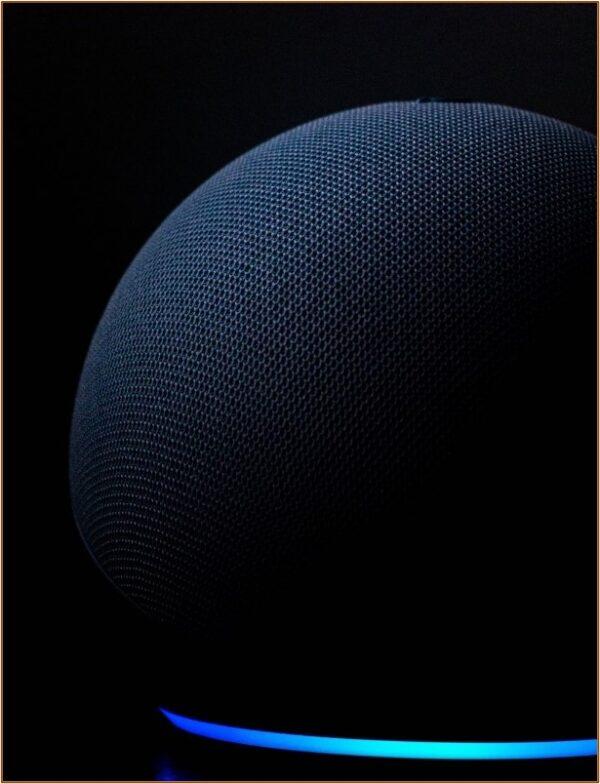
On November 14, 2014 tech giant Amazon announced the newest voice assistant to hit the market. The voice assistant, commonly known as “Alexa,” was a primary feature of a new wave of Amazon systems, known as the Echo. Alexa could answer virtually any question asked and perform many functions; from turning on lights and TV’s to remembering household chores. In 2017, Amazon reported a record breaking 21.5 million in sales of the device compared to a 1 million units sold of all other types of smart speakers during peak sale days like Black Friday, Cyber Monday, and Prime day (Ard, 2021).
While the device has become a household staple and an overwhelming success for Amazon, the use of a popular human name has since affected individuals named Alexa. In one instance, Alexa J. Morales, named after her late father, always held a certain pride in having her name. After the release of the voice assistant, however, it has since turned into a painfully common joke with others giving her commands or asking her questions in robotic tones. She is not alone. Many women named Alexa have reported that the teasing can take on a harassing nature with requests for sexual favors. To avoid this teasing, many Alexas have adopted new names, choosing to go by nicknames or legally changing their name (Johns, 2021). Parents of children named Alexa have reported that their children have increased insecurity on top of the bullying and the teasing that comes from both children and adults. Lauren Johnson, founder of the campaign, “Alexa is a Human,” said “My daughter Alexa is nine now. The whole thing is a step beyond ‘normal’ teasing and bullying. It’s identity erasure. The word Alexa has become synonymous with servant or slave. It gives people a license to treat people with the name Alexa in a subservient manner” (Johns, 2021). When this teasing is immediate and constant, affecting nearly every interaction, it can lead to mental health issues in both children and adults alike.
On the one hand, many believe that Amazon never considered the long-term consequences for individuals already named Alexa in their effort to humanize their voice assistant. Phillip Hunter, the head of user experience for Amazon from 2016 to 2018 had admitted in an interview the lack of concern behind the feature. “They were hoping to sort of humanize it, but at the cost of other humans’ feelings,” Hunter said in the interview. “If your product is causing people difficulty,” Hunter continued, “you should figure that out first and reconsider” (Ard, 2021). The problem is not just that Alexa is a human name, it was a popular human name in the United States. Apple’s voice assistant, Siri, is also a human name, but that name is relatively uncommon in the U.S. It was selected by the original Norwegian creator of the virtual assistant that was purchased by Apple (“Apple’s Siri,” 2015). Although women named Siri may also face teasing, the highest number of newborns in any given year named Siri over the last 20 years has been 120. By comparison, the height of Alexa’s popularity has reached upwards of 6,000 in a given year. As Joe Pinsker from The Atlantic writes, “Amazon did not exactly ruin the life of every Alexa, but the consequences of its decision seven years ago are far reaching – roughly 127,000 American baby girls were named Alexa in the past 50 years, and more than 75,000 of them are younger than 18” (Pinsker, 2021). So many individuals have been subjected to demeaning and sexually harassing jokes to such an extent that they feel forced to change their names in order to live a normal life. Voice assistants do not have to co-opt human names. Google’s smart assistant responds to “Google,” a recognizable and non-humanized term that doesn’t devalue anyone.
On the other hand, some might maintain that Amazon is not responsible for teasing associated with the popularity of their product. Amazon selected the name Alexa in part because it used soft vowels and an “x” so it would be distinctive in sound (vital to “wake up” the always on assistant at the right time). It was reminiscent of the Library of Alexandria, the ancient Egyptian repository once thought to hold all the wisdom in the world. Amazon has also owned Alexa Internet, a website tracking service which was also named as an homage to this ancient archive, since 1999.
While the company may not have foreseen the ethical concerns that would arise as a result of this name selection, the concerns have not fallen on deaf ears. Since receiving criticism about the use of the name, Amazon offers alternative wake words – Amazon, Computer, Echo, and most recently, Ziggy. Users can now also select a male voice for their assistant, and a range of accents. Arguably, any name that has a pop culture association is likely to elicit some teasing. Individuals with the name Leia or any similar variation growing up in the 1980s were unlikely to escape Star Wars jokes. Is it necessary to fully disassociate AI from human likeness in order to avoid associations that are a part of any pop culture phenomenon?
There is no denying the pervasive integration of Alexa into many Americans’ everyday lives. Amazon dominates the smart speaker market, representing 69% of all devices sold over the past five years (Bishop, 2021). Its impact is far reaching and for many individuals who share its name, that impact has ranged from annoying to traumatic. For better or worse, the increase in Amazon echo sales seems to have brought about a severe decline in the popularity of the name Alexa. In 2020, only about 1,300 babies were named Alexa as opposed to 6,000 at the height of its popularity (Ard, 2021). Is it better if our virtual personal assistants are given impersonal names?
Discussion Questions:
- What are the central values at stake in the controversy over the use of common human names for voice assistants?
- What ethical obligations do companies have in the development of consumer products that may become culture changing?
- Did Amazon respond to consumer concerns appropriately? Why or why not?
- As virtual assistants become housed in moving robots as opposed to simple tabletop speakers, how might this change the discussion about the use of human names?
Further Information:
Ard, A. J. (3 December 2021). “Amazon, can we have our name back?” The Washington Post. Available at: https://www.washingtonpost.com/technology/interactive/2021/people-named-alexa-name-change-amazon/
Bishop, T. (4 August 2021). “Amazon maintains big lead over Google and Apple in U.S. smart speaker market, new study says.” GeekWire. Available at: https://www.geekwire.com/2021/amazon-maintains-big-lead-google-apple-u-s-smart-speaker-market-new-study-says/
How Apple’s Siri got her name. (8 January 2015). The Week. Available at: https://theweek.com/articles/476851/how-apples-siri-got-name
Johns, T. (1 July 2021). “Parents of children called Alexa challenge Amazon.” BBC News. Available at: https://www.bbc.com/news/technology-57680173
Pinsker, J. (18 August 2021). “Amazon Killed the Name Alexa” The Atlantic. Available at: https://www.theatlantic.com/family/archive/2021/08/amazon-alexa-popular-name/619794/
Authors:
Lauren Byrd, Leah A. Ransom & Scott R. Stroud, Ph.D.
Media Ethics Initiative
Center for Media Engagement
University of Texas at Austin
August 29, 2023
Photo by Reet Talreja on Unsplash
This case was supported by funding from the John S. and James L. Knight Foundation. It can be used in unmodified PDF form in classroom or educational settings. For use in publications such as textbooks, readers, and other works, please contact the Center for Media Engagement.
Ethics Case Study © 2023 by Center for Media Engagement is licensed under CC BY-NC-SA 4.0




